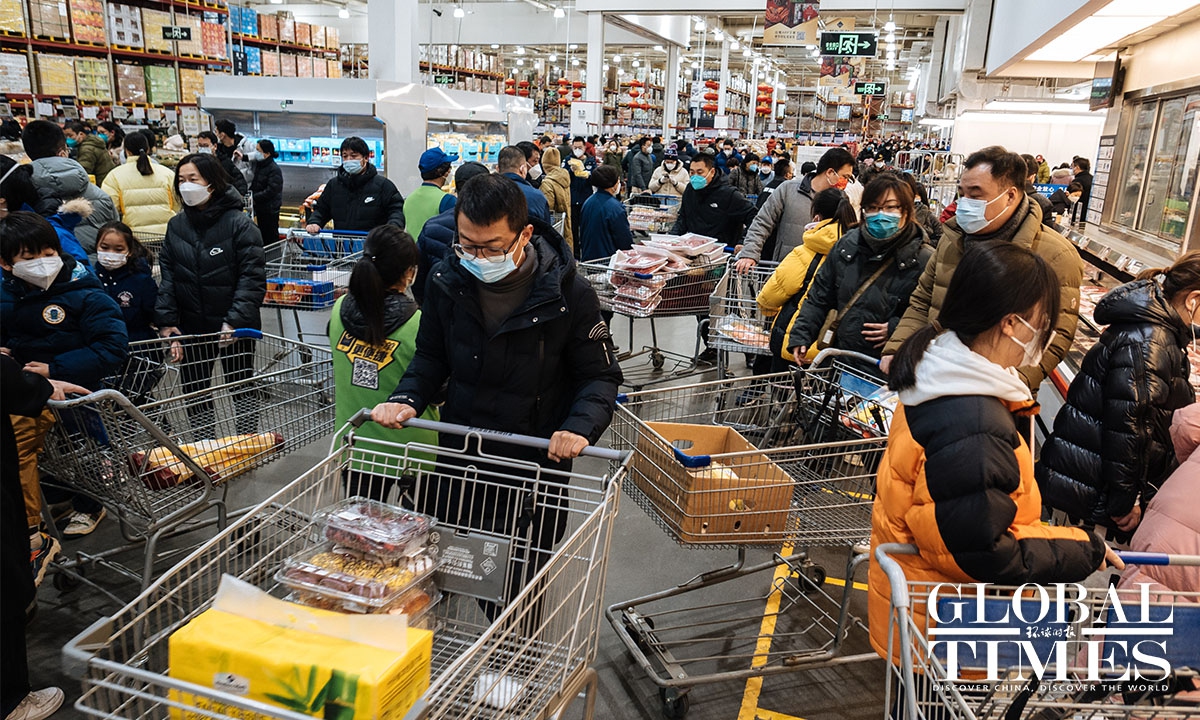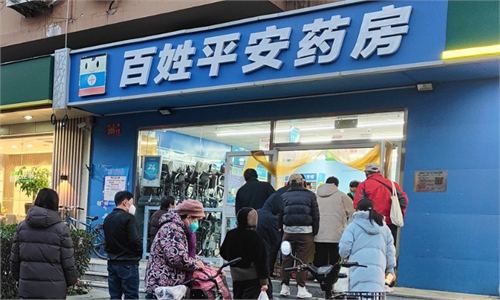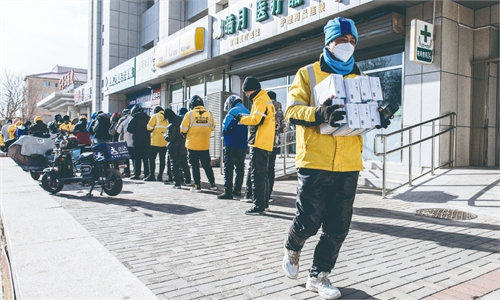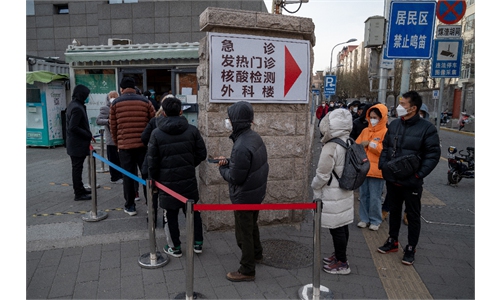Beijing to step up business resumption by allowing dine-in services, recovered patients to return to workplaces

Some supermarkets in Beijing have begun to witness a recovery, with customer traffic growing daily. At present, markets have sufficient supplies, and logistics services are also recovering steadily. Photo: Li Hao/GT
Beijing is stepping up resumption of production and business by allowing dine-in services, canceling nucleic acid testing requirement at some indoor entertainment venues as well as allowing recovered patients to return to workplaces without nucleic acid test results, while getting prepared to cope with the increasing infections following the adjustment of COVID-19 response.
Beijing will cancel a series of restrictions to restore normal production and life as soon as possible, including lifting restrictions on the rate of attendance and movement across districts, and canceling the requirement of "three tests within three days" for new arrivals in the capital city, Xu Hejian, a spokesperson for the Beijing Municipal Government, announced at a press briefing on Monday.
Besides, the city will cancel the requirement of regular nucleic acid tests for practitioners in a certain of industries such as imported non-cold chain goods, property agencies, accommodation services, library, cultural museums, art galleries, tourist attractions and manufacturing workshops.
Underground business venues such as bars, KTVs, internet cafes and gymnasiums can also resume operation. Dine-in services, hotel conferences, training, banquets are also allowed to be held.
Travel agencies' group tour service in Beijing as well as cross-provincial group tours service can also be resumed.
Beijing authorities also announced optimized policies on recovered COVID-19 patients on Monday that COVID-19 infections can stay under quarantine at home and return to workplace with no fever seven days later without nucleic acid testing or antigen testing results.
Beijing has been coping with a peak of COVID-19 infections over the past few days. With the rapid development of the COVID-19 epidemic, the number of infected people with fever continues to increase, which poses pressure on the city's medicine supply and medical treatment resources, Xu said during Monday's briefing.
However, after allocation and hard work, although the overall demand for medical treatment and medicine still remains in tight equilibrium, a clear trend toward stability and improvement has shown, Xu said.
According to Xu, the focus of work will be shifted from infection prevention and control to medical treatment in the future.
The Beijing authorities urged that under no circumstances shall a patient be refused medical treatment or transport, noting focus should be placed on vulnerable groups like the elderly, the young people, the sick, the disabled and pregnant people.
The city has speeded up the establishment of fever clinics across the city with the total number of fever clinics increasing to 1,263 from 94, according to local health authority.
The 13 pharmaceutical enterprises in the city which produce over 20 kinds of medicines have also tripled their production capacity. Besides, the daily output of four enterprises producing COVID-19 antigens reagents has increased to 8 million.
Global Times



